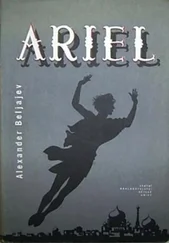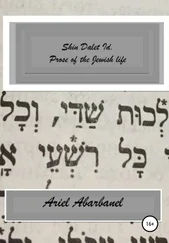Ariel Toaff - Blood Passover
Здесь есть возможность читать онлайн «Ariel Toaff - Blood Passover» весь текст электронной книги совершенно бесплатно (целиком полную версию без сокращений). В некоторых случаях можно слушать аудио, скачать через торрент в формате fb2 и присутствует краткое содержание. Жанр: Религиоведение, на английском языке. Описание произведения, (предисловие) а так же отзывы посетителей доступны на портале библиотеки ЛибКат.
- Название:Blood Passover
- Автор:
- Жанр:
- Год:неизвестен
- ISBN:нет данных
- Рейтинг книги:3 / 5. Голосов: 1
-
Избранное:Добавить в избранное
- Отзывы:
-
Ваша оценка:
- 60
- 1
- 2
- 3
- 4
- 5
Blood Passover: краткое содержание, описание и аннотация
Предлагаем к чтению аннотацию, описание, краткое содержание или предисловие (зависит от того, что написал сам автор книги «Blood Passover»). Если вы не нашли необходимую информацию о книге — напишите в комментариях, мы постараемся отыскать её.
Blood Passover — читать онлайн бесплатно полную книгу (весь текст) целиком
Ниже представлен текст книги, разбитый по страницам. Система сохранения места последней прочитанной страницы, позволяет с удобством читать онлайн бесплатно книгу «Blood Passover», без необходимости каждый раз заново искать на чём Вы остановились. Поставьте закладку, и сможете в любой момент перейти на страницу, на которой закончили чтение.
Интервал:
Закладка:
David Mavrogonato died as mysteriously as he had lived, probably during his fourth mission. On 18 December 1470, the Doge of Venice, writing to the Duke of Crete, mentioned the death of his secret agent, but without providing any details as to the circumstances of his death [38] In a letter dated 18 December 1470 and addressed to the Duke of Crete, the Doge referred to Mavrogonato’s death ("qui denique eundo in servitiis nostri admisit vitam") [“who was furthermore acting in our service at the risk of his life”], praising his loyalty to the Republic (cfr. Jacoby, Un agent juif , cit., pp. 76-77). $1.
. Mavrogonato may have accepted the dangerous assignment of plotting the Great Turk’s assassination in one way or another, and may for some reason have failed in the mission, meeting an unexpected death in the process. Other, later, clues are also thought to point in this direction.
Among the requests filed by Mavrogonato with the Council of Ten after his first secret mission to Candia in the years 1461-1462, was that of being permitted to avail himself of a body guard, assigned to his personal defense ("that you might deign to grant him the privilege [...] of keeping [...] some person near him for the safety of his person, so that no violence or ignominy may be done to him by some villain or other evil person").
p. 23]
Once his petition had been accepted by the Venetian legal authorities in February 1464, the merchant from Candia made haste to appoint a person originally described as a sort of bodyguard, but referred to in the document as Mavrogonato’s "associate", a designation quite distinct in scope as well as quality. This bodyguard, or “associate”, was to share in almost all the privileges granted by the city of Venice to Mavrogonato, including that of being authorized to engage in business of any kind, on a basis of equality with Venetian merchants, and being permitted to move about the city and territory wearing the black hat of a Christian gentlemen instead of the crocus-colored beret of the Jews (for this reason, Mavrogonato, in Venice and its domains, was known as "Maurobareti") [39] Among the privileges granted on 2 July 1466 by the Consiglio dei Dieci to David Mavrogonato, his children and descendents, in addition to his bodyguards, Andrea Cornaro also reported that of "di non portar beretta giallo or altro segno, che portano li Hebrei nel capello, ma portion il capello negro come li Christiani, per la qual cosa d'alhora in qua detti Hebrei Mavrgonato si dicono Mauroberti (recte: Maurobereti) per sopranome, che vuol dire baretta negra" [“of not wearing a yellow cap or other sign usually worn by Jews on their hats, but to wear a black cap like the Christians, for which reason Mavrogonato was thereafter called by the last name of Mauroberti, which means black cap”] (cfr. Jacoby, Un agent juif , cit., p. 79).
. Mavrogonato was an experienced and rich businessman, but not a muscular street fighter or expert in the martial arts; these latter services were to be provided by a man bearing the name of Salomone da Piove di Sacco, known throughout Venice and the entire Veneto region as a banker, merchant and rough-and-ready financier, as bold as he was unscrupulous [40] "David praedictus dixit et declaravit quod socius suus, signi non portandi et arma [ferendi], est Salamon qn. Marcu, cuius auxilio et consilio usus fuit in praedictus et omnia (recte: circa) praedicta" [“the aforementioned David said and declared that Salomone, son of the late Marcuccio, was his assistant and advisor in all the aforementioned activities, being entitled to carry a weapon to go about without any insignia”] (ASV, Inquisitorato algi Ebrei, envelope 39, Per David Maurogonato contro Senseri Ordinarj di Rialto, dated 1 February 1464 [1463 more veneto ].
. Starting in 1464 and continuing thereafter, Mavrogonato is thought to have entrusted his affairs to Salomone da Piove di Sacco during his enforced and prolonged absences from Venice, including the management of his lordly dwelling at San Cassian and his joint interest in commercial ventures undertaken on the maritime routes to the great markets of the Levant.
Finally, Mavrogonato is also believed to have entrusted Salomone da Piove with some of his own precious secrets as a diplomatic spy in the pay of Venice. On the eve of his first, risky trip to Constantinople in June 1465, David Mavrogonato informed the Council of Ten that he had indeed confirmed Salomone as his business agent at Venice "due to the complete faith which I have in him" [41] On 17 June 1465, David Mavrogonato announced to two representatives of the Consiglio dei Dieci "quod relinquit pro eo et agendis suis in Venetiis Salomonem de Plebisacci hebreum, quia de eo se confidet" [“that the Jew Salomone da Piove was acting on his behalf and as his agent, since he had complete confidence in him]; (the document, published in the original by Manoussacas, is cited by Jacoby, Un agent juif , cit., p. 74 and by Carpi, L’individuo e la collettività , cit., p. 42). The privileges granted by the authorities at Venice to Salomone da Piove are indirectly confirmed by in a parte , approved by the Consiglio del Comune di Padova on 22 January 1467. In this, the Paduan rulers claimed that they were applying the standards of the Statutes against Salomone ("casum querelle seu accuse contra Iudeum de Plebe") [“because of the quarrels caused by his accusations against Salomone da Piove”], notwithstanding the protection which he enjoyed in Venice (Archivio di Stato di Padova [henceforth: ASP], Consiglio del Commune, Atti, 7, c. 202v).
.
Salomone’s ancestors had arrived in Italy in the last part of the 14th century from the Rhine region in Germany, perhaps from the same important seat of the archbishop of Cologne. The family had gradually extended its offshoots from Cividale del Friuli, where Maruccio (Mordekhai) and Fays -- Salamone’s father and grandfather respectively -- had operated in the local money market, to Padua, where, in the mid-15th century, the same Salomone managed the bank of San Lorenzo in the city district of the same name [42] On Salomone di Marcuccio da Piove di Sacco and his family, see D. Jacoby, New Evidence on Jewish Bankers in Venice and the Venetian Terraferma (c. 1450-1550), in A. Toaff and Sh. Schwarzfuchs, The Mediterranean and the Jews. Banking, Finance and International Trade (XVI-XVIII Centuries) , Ramat Gan, 1989, pp. 151-178; Carpi, L’individuo e la collettività , cit., pp. 27-60; D. Nissim, I primordi della stampa ebraica nell'Italia settentrionale. Piove di Sacco-Soncino (1469-1496), Soncino, 2004, pp. 90-13.
.
Salomone and his clan formed part of a migratory flow extending to all regions of northern Italy since the very late 14th century, involving the massive transalpine migration of entire German-speaking communities, both Christians and Jews,
p. 24]
from the Rhineland, Bavaria and upper and lower Austria, Franconia and Alsace, the Kärnten, Styria and Thüringen, Slovenia, Bohemia and Moravia, Silesia, Swabia and Saxony, Westphalia, Württemburg in the Palatinate, Brandenburg, Baden, Worms, Regensburg and Spira. A heterogenous German-speaking population, made up of rich and poor, entrepreneurs and artisans, financiers and scoundrels, men of religion, adventurers and rascals, traveling from the transalpine territories via the mountain crossings in a process of long duration, towards the lagoons of Venice, as well as the cities and lesser centers of the terra firma of the Veneto region [43] In this regard, see, among others, Ph. Braunstein, Le commerce du fer à Venise au Xve siècle , in "Studi Veneziani", VIII (1966), pp. 267-302; Le prêt sur gage a Padoue et dans le Padouan au milieu du XVe siècle , in G. Cozzi, Gli ebrei e Venezia (secoli XIV-XVIII) , Milan, 1987, pp. 652-653; M. Toch, The Formation of a Diaspora. The Settlement of Jews in the Medieval German Reich , in "Aschkenas", VII (1997), no. 1, pp. 55-78. For an illustration of this phenomenon, see also L. Boeninger, La Regula bilingue della scuola dei calzolai tedeschi a Venezia del 1383 , Venice, 2002.
.
Интервал:
Закладка:
Похожие книги на «Blood Passover»
Представляем Вашему вниманию похожие книги на «Blood Passover» списком для выбора. Мы отобрали схожую по названию и смыслу литературу в надежде предоставить читателям больше вариантов отыскать новые, интересные, ещё непрочитанные произведения.
Обсуждение, отзывы о книге «Blood Passover» и просто собственные мнения читателей. Оставьте ваши комментарии, напишите, что Вы думаете о произведении, его смысле или главных героях. Укажите что конкретно понравилось, а что нет, и почему Вы так считаете.












